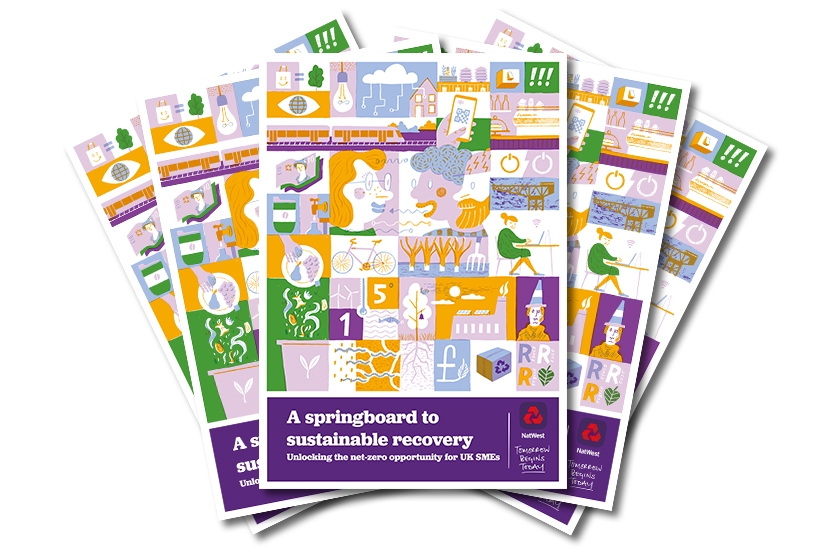There is a shared understanding that one of the top priorities facing the world is the need to reduce carbon emissions and enable businesses to transition to net zero.
To support UK decarbonisation and the government’s net zero strategy, NatWest commissioned research which found that 50 per cent of the UK’s carbon reduction ambition can be delivered by the small and medium-sized enterprises sector, unlocking a £160 billion opportunity for those businesses in the process. This is vital; as the world comes together at COP26, we must all act with urgency if we are to avoid the worst impacts of climate change.
Our report, A Springboard to Sustainable Recovery, supports NatWest’s efforts to halve financed emissions by 2030 and meet net zero targets by 2050, in line with our commitments as a founding member of the Net Zero Banking Alliance.

For smaller companies, going green can seem like an expensive process. But the study told us that up to 70 per cent of low carbon options will have a solid business case by 2030 – and some, such as switching to renewable energy and improving energy efficiency, can save firms money today.
Climate action
Meaningful change cannot be delivered alone, so we are calling on financial institutions, government, industry bodies and large corporations to play their role in collectively supporting SMEs to unlock the climate opportunity.
Through the report, we have made six clear recommendations where SMEs need the most support to achieve effective transition:
- Funding Access – financing that reflects the societal benefit of delivering climate action, ensuring that business investments make financial sense.
- Awareness – support to recognise the opportunity from climate action, highlighting key skills required to transition successfully.
- Knowledge – help to reduce their climate impact and improve their ability to measure and report that impact.
- Skills and capabilities – support to develop new skills to deliver transition, such as training employees, achieving accreditations and improving management capabilities.
- Market access – improved financial certainty of the benefits of broader climate action.
- Navigation – support to navigate the complex and evolving landscape, understanding what support is available and what will most benefit their business.
To play our part, earlier this month we committed to lending £100 billion of Climate and Sustainable Funding and Financing (CSFF) by the end of 2025.
We also launched a new green loan, specialist accelerators for clean transport and circular economy, new tools for businesses to monitor their carbon footprint and mandatory climate training for all our relationship managers in collaboration with the Universities of Cambridge and Edinburgh.
As the UK’s largest business bank, we will continue to honour our commitment to the country’s diverse and enterprising SME sector, and to the climate change challenge we all face through our products, support and advice.
We should never underestimate the power of the small – and in this case SMEs – for leveraging big advances. What the report tells us, in clear numbers, is that all sectors of the economy will need to play their part in helping the UK achieve its climate ambitions. We must look at this not just as an imperative, but as a huge opportunity for business.
Andrew Harrison, Head of Business Banking at NatWest






Comments